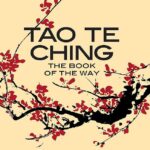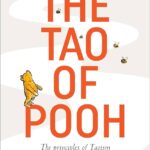Welcome to Thinkers Books, where we explore the depths of literature and philosophy, shedding new light on our understanding of the world. Today, allow us to take you on an enlightening journey through the Hundred Acre Wood with ‘The Tao of Pooh’ by Benjamin Hoff.
‘The Tao of Pooh’ is an innovative exploration of Eastern philosophy intertwined with the charm of Western children’s literature. Hoff uses the lovable characters from A.A. Milne’s ‘Winnie-the-Pooh’ series to simplify and illustrate the principles of Taoism, an ancient Chinese philosophy. The book guides how to maintain happiness and tranquillity in all circumstances, advocating for living in harmony with nature and relishing in the joy of anticipation rather than attaining rewards.
Hoff introduces us to Taoism through the story of The Vinegar Tasters, a famous Chinese scroll that captures Confucius, Buddha, and Lao-tse (the founder of Taoism). Their varied reactions to tasting vinegar, which symbolises life, lay the foundation of their respective philosophies. Hoff then presents Winnie the Pooh as a Taoist master, demonstrating how his simplistic thought processes and enjoyment of life’s simple pleasures align with Taoist teachings.
Here are the top five takeaways from this insightful book:
- Living in the Present: Pooh, our Taoist master, is never seen worrying about the past or future. Instead, he fully immerses himself in the present moment, whether enjoying a pot of honey or embarking on an adventure with his friends. This serves as a reminder that the present moment is all we truly have. By dwelling on the past or worrying about the future, we miss out on the joy and experiences of the present.
- Simplicity: Pooh’s life is simple. He takes pleasure in the most essential things – a sunny day, a good meal, the company of friends. Pooh’s approach to life urges us to pare back and focus on what truly matters in our complex, fast-paced world, where we are often bombarded with information and distractions. It reminds us that contentment and joy can be found in simplicity.
- Harmony with Nature: Pooh lives in the Hundred Acre Wood, and his actions are in tune with the rhythm of nature. He doesn’t try to dominate or alter his environment but co-exists peacefully with it. This highlights the Taoist principle of living in harmony with the natural world, teaching us to respect and appreciate the natural flow of life rather than constantly trying to control or change it.
- Contentment: Despite his simple life, Pooh is one of the happiest characters in literature. He doesn’t constantly strive for more or compare himself to others. Instead, he appreciates what he has and finds joy in it. This teaches us the value of contentment. In a society that often equates success with material wealth, Pooh shows us that true happiness comes not from having more but from appreciating what we already have.
- Non-Action (Wu Wei): Pooh embodies the Taoist principle of ‘Wu Wei’, which translates to ‘non-action’ or ‘effortless action’. This doesn’t mean doing anything but rather knowing when to act and when to let things take their natural course. It’s about trusting in the flow of life and understanding that sometimes, the best action is no action at all. For example, when a problem arises, instead of rushing to fix it, Pooh calmly assesses the situation and often finds that the solution presents itself in due time.
Essentially, ‘The Tao of Pooh’ encourages us to slow down, live in the present, appreciate the simple things, respect nature, and practice patience. These principles can help guide us towards a more peaceful and fulfilling life.
‘The Tao of Pooh’ makes the complex principles of Taoism accessible and relatable. It’s a reminder that wisdom can come from the most unexpected places and that slowing down to appreciate the simple things in life can be incredibly rewarding.
We hope this journey through ‘The Tao of Pooh’ has offered you a fresh perspective on life. We invite you to delve further into other enlightening pieces of literature with Thinkers Books. In the wise words of Winnie the Pooh, “Sometimes, the smallest things take up the most room in your heart.” Let’s focus on appreciating the small things in life. Until next time, keep thinking and keep reading.







